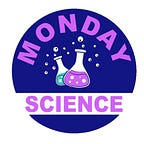Episode 5: Retractions!
Episode summary written by Francesca Jacklin
This week Dr Bahijja Raimi-Abraham discusses retractions of scientific literature, especially in the context of a recent paper about COVID-19 and hydroxychloroquine. Accurate data and insightful conclusions are essential to progress in science and medicine. Retractions can happen when certain findings or data in a paper are later found to be unsupported, and as a result, the publication is required to be withdrawn.
Last month, three authors of the paper, Hydroxychloroquine or chloroquine with or without a macrolide for treatment of COVID-19: a multinational registry analysis’, retracted their study. They states that they are unable to complete an independent audit of the data underpinning their analysis, and as a result, have concluded that they “can no longer vouch for the veracity of the primary data sources”. The study had attracted significant attention after being published in The Lancet, one of the oldest and most respected medical journals in the world.
This is a very big deal, especially as there has been a recent surge of publications on COVID-19 and questions surrounding their validity. Retractions like this can have a large impact both on the scientific community, and the individuals.
The publication process
When academics want to publish their research findings, they tend to do so in a peer reviewed journal such as The Lancet. This involves a strict pre-publication review, in which the manuscript or article is critiqued by colleagues in the field. There are typically 3 reviewers for each article, who decide whether its findings are valid and well-founded. The process is overseen by the Editor, who can also override decisions made by the reviewers. This stage is designed to help question the integrity of the work and highlight any issues for the authors to address.
After the authors have made any suggested alterations, the article is accepted and published by the respective journal. Peer review continues as publications are read in a sort of post-publication review stage, in which readers often send letters to the editor. These letters are also commonly published and reviewed.
A publication’s impact factor measures the importance, rank, and impact of a journal
The impact factor is a measure of the frequency with which the average article in a journal has been cited in a particular year. Generally, the higher the impact factor, the more important a journal is. For example, top journals in science and health including Nature, and The Lancet, and New England Journal of Medicine have impact scores of 43, 59, and 70, respectively. Articles relating to COVID-19 that have been published in these journals, especially The Lancet Infectious Diseases (from The Lancet family of journals), have gained the most publicity.
Where scientists publish in terms of impact factor and number of citations, is used to calculate a value called the H-index. This is an author-level metric that attempts to measure both the productivity and citation impact of the publications of a scientist/academic. It can be viewed as a numerical indicator of how productive and influential a researcher is. For instance, H-index of 17 means that the scientist has published at least 17 papers that have each been cited at least 17 times. H-indexes are now a common factor in evaluating applicants for academic positions and research grants.
As attractive as this sounds, there are some dangers accompanying the H-index as a measure of researcher productivity. It is difficult to compare the score across different fields, and there are concerns that it detracts focus from creativity and content and onto maximising metrics.
How do papers get retracted?
When a paper is retracted, it is removed from the journal. This may be initiated by the editors, the authors (or their institutions), non-authors including other academics in the field, or even the public. Retractions are sometime accompanied by apologies for previous errors and/or expressions of gratitude to persons who disclosed the error to the author. Content can also be withdrawn to a lesser extent than a full retraction and labelled as a correction.
They can occur for numerous reasons, not limited to errors, fraud, misconduct, or a public response to an article.
A case study on falsified evidence and its impact
An article by Haruko Obokata is a well-known case of a paper that was retracted in 2014 due to fraud and misconduct. Obokata and a team of authors published two papers in Nature about STAP cells, outlining a method of inducing cells to become stem cells. The articles were retracted later in the year after evidence of falsification. Sadly, Obokata’s mentor and co-author Dr Yoshiki Sasai committed suicide the following August, after being cleared of misconduct but heavily criticised for inadequate supervision of Obokata. Sasai was hammered in the Japanese media, with many reflecting on his responsibility for the papers and delving into his personal life. A lawyer working for his family said in a press conference that a note left by him before he took his own life blames the storm of media attention around the retraction of the papers for his suicide.
Current issues with retraction and COVID-19
So far, 15 papers on COVID19 have been retracted, 2 papers have been temporarily retracted and there’s an expression of concern with another. The retractions have ranged from studies related to COVID-19 epidemiology and clinical features in China to combined use of hydroxychloroquine and azithromycin use in COVID-19 patients.
There is considerable concern about research misconduct during this time with researchers, journals and institutes keen to be the first to report new findings. This raises serious questions about the way that underlying data in papers is being evaluated. The impact of this may complicate the effort to trial treatments, in particular during the COVID-19 pandemic.
If you have any questions you’d like to be answered by Dr Bahijja, feel free to send them in via the website chat, or email MondayScience2020@gmail.com. You can also send us your questions as a voice message via
https://anchor.fm/mondayscience/message. We love to hear your thoughts!
